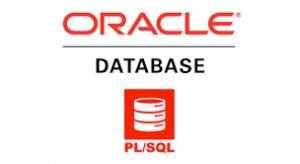Database Design and Administration





Database Administration Services by Marshillweb.com
In today’s data-driven world, your business’s success is tightly linked to how effectively and securely you manage your data. At Marshillweb.com, we specialize in providing expert Database Administration (DBA) services designed to optimize the performance, security, and reliability of your databases, ensuring your data infrastructure works seamlessly to support your business goals.
Why Choose Marshillweb.com for Your DBA Needs?
1. Comprehensive Database Management Expertise
Our skilled and certified database administrator possesses in-depth knowledge across a wide range of database platforms, including MySQL, SQL Server, Oracle, PostgreSQL, and NoSQL databases. Whether you need support for a single database instance or a complex multi-database environment, we’ve got you covered.
We offer comprehensive DBA services, including:
– Database Installation & Configuration
– Database Optimization & Performance Tuning
– Backup & Disaster Recovery Solutions
– Security Management & Compliance
– Database Migration Services
– High Availability and Scalability Solutions
– Routine Maintenance & Health Checks
– Emergency Support & Troubleshooting
2. Customized Solutions for Your Business
At Marshillweb.com, we understand that every business is unique, and so are your data management needs. Our team will work with you to design a custom database administration strategy that aligns with your objectives. Whether you’re a growing startup or an established enterprise, we provide flexible solutions that scale with your business.
3. Proactive Monitoring & Maintenance
Database issues can arise unexpectedly and affect your business’s operations. Our proactive monitoring service ensures that your database environment is constantly being watched, with 24/7 monitoring to detect performance anomalies, potential security threats, or failures before they escalate into serious problems. This minimizes downtime and optimizes performance, allowing your team to focus on core business tasks without worrying about data infrastructure issues.
4. Optimized Performance & Cost Efficiency
A slow or underperforming database can cripple your business productivity and customer experience. Our DBAs perform in-depth performance tuning, query optimization, and resource allocation to maximize the speed and efficiency of your database systems. Additionally, we help reduce infrastructure costs by ensuring that your resources are used effectively, helping you avoid unnecessary spending on hardware or cloud services.
5. Security & Compliance Assurance
Protecting your sensitive business data is paramount. Marshillweb.com follows best practices to safeguard your database against cyber threats and data breaches. We employ industry-leading security measures such as data encryption, user access control, and regular vulnerability assessments. Furthermore, we assist in ensuring your database complies with relevant regulations, such as GDPR, HIPAA, and PCI-DSS, helping you avoid legal risks and penalties.
6. Disaster Recovery & Business Continuity
Data loss can have devastating consequences for any business. We ensure your data is protected by designing robust backup strategies and disaster recovery plans. Our team regularly tests these plans to ensure quick recovery from unexpected events like system crashes, natural disasters, or human error, minimizing downtime and protecting your critical data.
7. Expert Database Migrations
Looking to migrate your data to a new system or platform? Whether it’s a cloud migration or moving from one database technology to another, our team will help you navigate the complexities of the process. We ensure seamless data migration with minimal disruptions to your business operations, and we conduct thorough testing to guarantee data integrity post-migration.
8. Cost-Effective and Scalable Support
Our database administration services are designed to be scalable and cost-effective. Whether you need a full-time DBA, on-demand support, or periodic database health checks, Marshillweb.com offers flexible pricing models to suit your needs and budget. This means you can access enterprise-grade database management without the overhead costs of maintaining an in-house DBA team.
The Marshillweb.com Advantage:
Expertise: We bring years of experience and specialization to the table. Our team has a track record of optimizing databases for performance, security, and scalability.
Proven Results: Our DBA services have helped numerous businesses streamline operations, reduce downtime, and enhance security. We take a results-driven approach that focuses on real-world improvements.
Commitment to Client Success: At Marshillweb.com, we view ourselves as your long-term partner in database management. We are committed to ensuring the health and efficiency of your database environment, so your business can thrive.
Peace of Mind: With Marshillweb.com handling your database administration, you can focus on growing your business without worrying about database maintenance, performance issues, or security concerns.
Conclusion:
Your data is one of your business’s most valuable assets. Entrust its management to the experts at Marshillweb.com, where we combine technical excellence with a commitment to your business’s success. Let us take the complexity out of database administration and provide you with the peace of mind that comes with knowing your data infrastructure is in capable hands.
Contact Marshillweb.com today to learn how our DBA services can support your business, enhance performance, improve security, and ensure business continuity.
—
Get in Touch:
Visit Marshillweb.com to schedule a consultation or reach out to our team directly for a personalized assessment of your database needs. We look forward to working with you!
What do Database Administrators do?
Database administrators ensure databases run efficiently. Database administrators and architects create or organize systems to store and secure a variety of data, such as financial information and customer shipping records. They also make sure that the data are available to authorized users. Database administrators (DBAs) use specialized software to store and organize data. The role may include capacity planning, installation, configuration, database design, migration, performance monitoring, security, troubleshooting, as well as backup and data recovery. Database administrators (DBAs) design, write and take care of computer database systems so that the right person can get the information they need at the right time. Responsibilities of the job vary according to employment sector, but typically include:
- working with database software to find ways to store, organize and manage data
- troubleshooting
- keeping databases up to date
- helping with database design and development
- managing database access
- designing maintenance procedures and putting them into operation
- ensuring that databases meet user requirements
- liaising with programmers, applications/operational staff, IT project managers and other technical staff
- managing database security/integrity and backup procedures
- implementing security measures
- defining objectives through consultation with staff at all levels
- writing reports, documentation and operating manuals
- testing and modifying databases to ensure that they operate reliably
- providing user training, support and feedback
- writing disaster recovery plans
- archiving data
This role can involve working to tight deadlines and when necessary, long hours. IT professionals working in this area may also be need to be available for call-outs on evenings and weekends.
